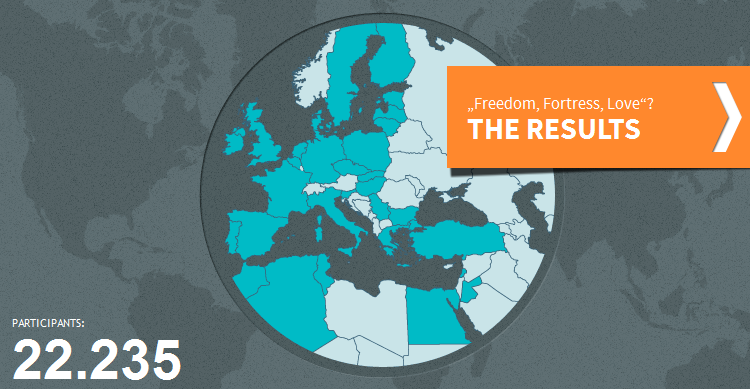EUROPE LIST: On the search for a European culture

30 Goethe-Instituts in Europe, in the neighbouring countries and in (potential) EU accession states asked people about a European culture. The aim of the EUROPE LIST was to get people enthusiastic about Europe. 22,235 people participated in the survey and the results are now in!
The public focus in Europe currently lies with questions of finance, currency and the economy. This diverts attention from other, longer-lasting issues such as the lack of imagination for a more sensuous Europe, which is shaped more by its citizens. With the EUROPE LIST project the Goethe-Institut, together with Deutschland Radio Kultur and DIE WELT, was reacting to this crisis. Their aim was to make Europe tangible for many people while also creating a platform for them to shape their vision of a cultural Europe.
In which language is saying “I love you” the most beautiful? Who is the most eminent European artist? In which of these counties would you like to spend more time than just an all-inclusive holiday: in Poland, Malta or in Germany?
The EUROPE LIST. A list of the best of our cultural and living Europe.
The EUROPE LIST gives answers to such questions as: What keeps us together? Which are our most eminent cultural achievements?
More than 22,000 people interested in Europe took part and gave their vote in the search for a European culture.
Umberto Eco comments on the results - pleased that the survey showed that Italian cooking was regarded as the best, he makes several pertinent remarks:
... there is a string of answers that I think are extremely significant. To sum up what Europe means to them, a majority – albeit a tiny one – said “culture”. It is important that at least an elite of young people should be aware that what binds together Europe’s different languages, territories and forms of government is culture, much more than the euro.
and concludes:
... the answers inspire a certain optimism while revealing a generation that remembers almost nothing of the past. This is something that an education for Europe ought to recover.
Similar content
posted on
30 Jan 2018
07 Nov 2009
11 Oct 2018
19 Jul 2016
29 Oct 2018






